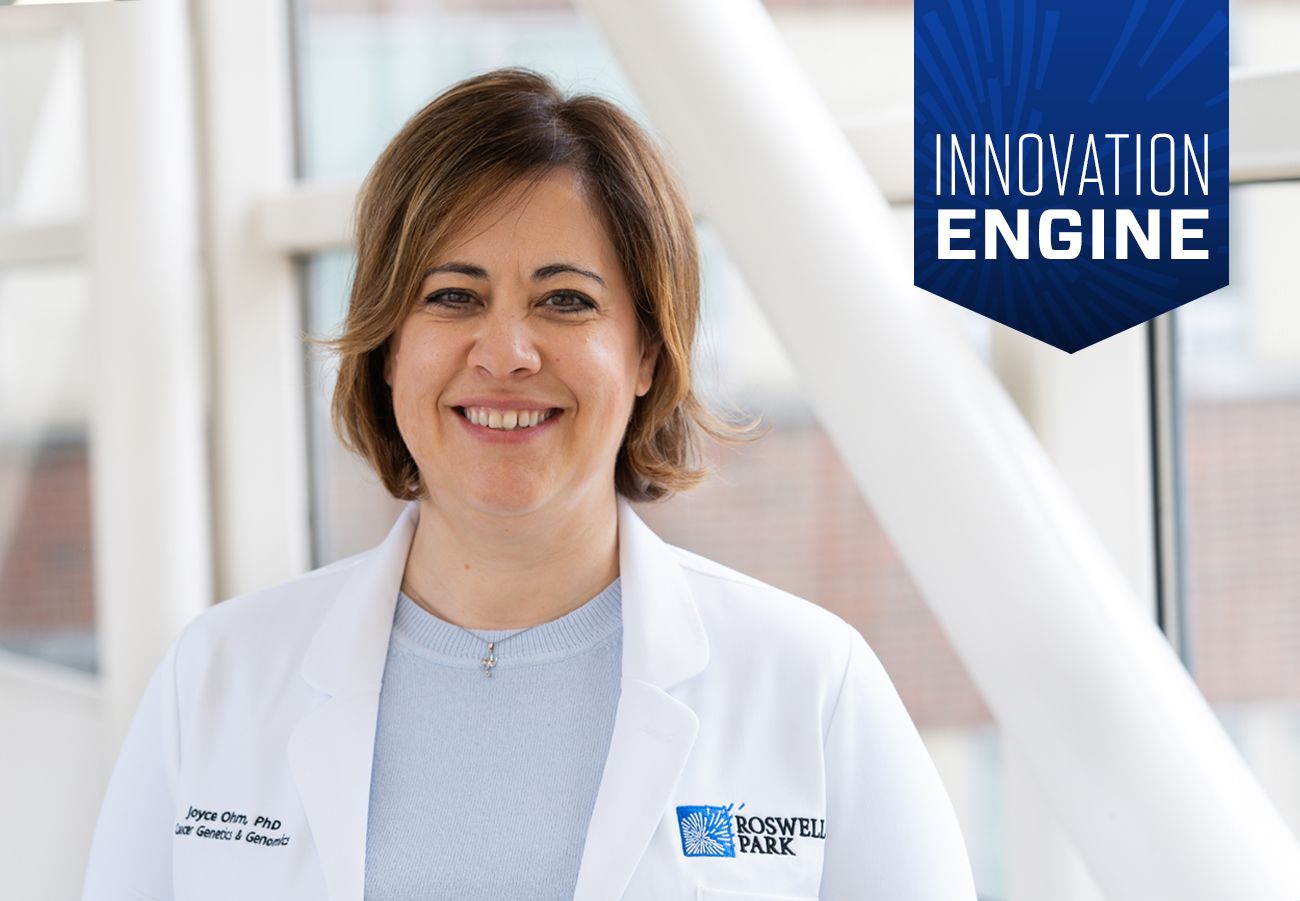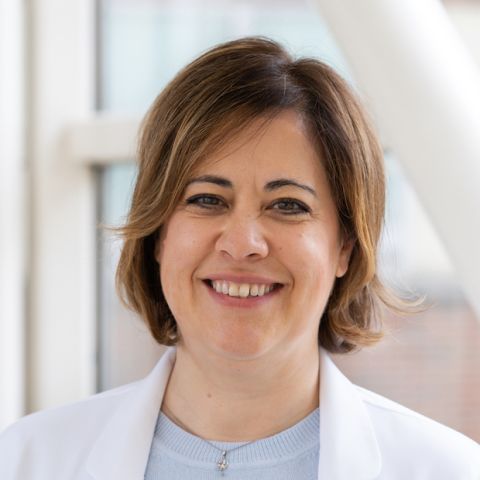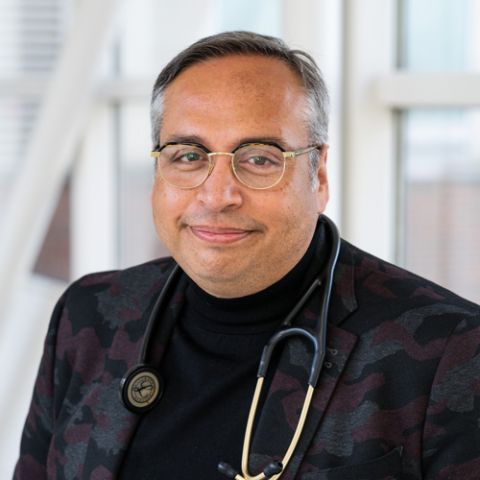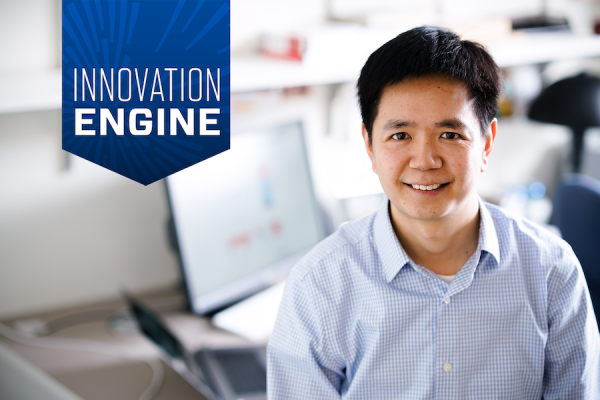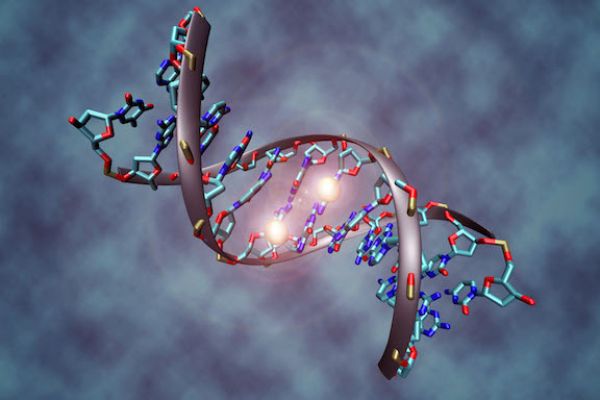The Innovation Engine series highlights high-impact Roswell Park science that advances the priorities of the National Cancer Plan — a roadmap for working together to end cancer as we know it. The work outlined in this post supports goal 1: Prevent Cancer, and goal 3: Develop Effective Treatments. Funds donated by the Palisano family and other donors through the Roswell Park Alliance Foundation helped support the research described here.
While normal aging of our bodies is expected as we grow older, some people age faster or slower than others due to changes that occur when normal genes are switched “on” or “off” by behaviors or environmental influences. These are called epigenetic changes. Epigenetic rapid aging can be caused by such factors as smoking, alcohol consumption, exposure to chemicals and lack of exercise.
Cancer treatment also can cause accelerated aging, increasing the risk of secondary cancers, infertility, cardiovascular disease and other health problems. The good news: unlike normal aging, epigenetic aging may be reversible.
Roswell Park Comprehensive Cancer Center researchers and patients are working together to unlock the secrets of epigenetic aging, an effort led by Joyce Ohm, PhD, Chair of Cancer Genetics and Genomics and an internationally recognized expert in cancer epigenetics. The problem is especially critical for pediatric, adolescent and young adult patients, who now survive cancer in greater numbers but later in life face a higher risk of developing new health problems that are usually seen only in older adults.
Cancer treatments may speed aging
"Thirty years after treatment, pediatric cancer survivors show accelerated epigenetic aging, and we think it’s due to the toll the cancer and the treatment have taken on them,” says Dr. Ohm. “Data show that long-term leukemia survivors are more likely to die of their comorbidities than they are of their cancer. Decades later, they are developing cardiovascular disease and dying of that.
“But no one has looked at epigenetic aging during treatment. When does it happen? How fast does it increase? Does it decrease after treatment ends? And what causes it — the chemotherapy or radiation? Do new therapies like CAR T-cell therapy have the same effects, or will they be better for long-term outcomes? We have no idea.”
Clues can be found in a biological process called DNA methylation — epigenetic changes in our DNA that are associated with aging. DNA methylation can disrupt the function of normal genes such as tumor suppressor genes, which protect us from cancer. By looking for DNA methylation in the blood of younger cancer patients, the researchers hope to identify those at elevated risk for medical problems linked to epigenetic rapid aging.
Looking for aging markers in current patients
Roswell Park patients with Hodgkin lymphoma — a disease that typically affects adolescents and young adults — will have a chance to contribute to that research as part of a unique noninterventional clinical trial led by principal investigator Francisco Hernandez-Ilizaliturri, MD, Professor of Oncology in the Department of Medicine and Director of Lymphoma Research at Roswell Park. Participants will donate blood samples before, during and after treatment and well into survivorship.
Dr. Hernandez-Ilizaliturri notes that improved treatment methods have led to better outcomes for newly diagnosed Hodgkin lymphoma patients. “As a result, more Hodgkin lymphoma patients are cured of their cancer every year,” he says. “On the other hand, treatment-related long-term adverse events, such as secondary cancers, obesity and cardiovascular disorders, are major complications in survivors. Death from treatment-related long-term side effects is more common than lymphoma-related death in these patients. And it’s unclear why young patients develop Hodgkin lymphoma in the first place and how new treatment strategies affect their risk of secondary cancers and other long-term complications.
“In this clinical trial, we will study the role of the ‘epigenetic clock,’ or biological aging, as measured by DNA methylation in the occurrence of Hodgkin lymphoma, and its effect on clinical outcomes, based on cure rates and the rates of long-term complications.”
Data from that study and others could inform strategies to prevent or reduce treatment-related health problems. “Epigenetic aging can be decelerated by exercise, diet and other lifestyle interventions,” notes Dr. Ohm.
Why are clinical trials important?
When clinical trials identify new and effective treatments, these treatments will eventually become the new standard of care.
Finding ways to slow or reverse epigenetic aging
To gauge the effects of exercise, a separate Roswell Park clinical trial enrolled 83 patients with invasive breast cancer who had completed treatment but did not meet the weekly physical activity guidelines set by the Centers for Disease Control and Prevention. Participants in the study, which involved experts from Roswell Park’s Medical Oncology and Cancer Prevention & Control teams and a collaborator from Buffalo State University, were assigned to one of four groups, each with a different exercise regimen.
Rehabilitation specialist Andrew Ray, PT, PhD, Associate Professor of Oncology, and Rikki Cannioto, PhD, EdD, MS, Assistant Professor of Oncology, both in the Department of Cancer Prevention & Control, oversaw the study’s exercise components. They and their colleagues are now reviewing data from the trial, which are expected to show how the exercise affected patients’ cardiovascular fitness; cognitive function; mitochondrial function, which produces energy for cells; stress and immune function biomarkers; quality of life and other measures.
Many participants provided blood samples before treatment, between the end of treatment and the beginning of the exercise regimen, and after completion of the exercise regimen. “Right now, we’re running those samples in Roswell Park’s Genomics Shared Resource (a specialized laboratory that can map and analyze DNA) to find out whether we can see the acceleration of epigenetic aging during treatment and whether the exercise intervention changed that,” says Dr. Ohm.
Studying epigenetic rapid aging also may shed light on the rapidly rising incidence of cancer in younger people — especially colorectal cancer, for which rates doubled between 1995 and 2019 among people under 55. Dr. Ohm says researchers want to learn whether those patients are biologically older than their peers. “Has an accumulation of lifestyle factors caused accelerated aging? Is that why they’re at risk for developing cancers that we used to see only in much older people?”
As a global leader in the relatively new field of cancer epigenetics, Roswell Park is rallying the expertise of its faculty, input from its patients and the power of its research infrastructure to better understand and control epigenetic aging. Says Dr. Ohm, “If we can identify when, what and how accelerated aging is taking place, we can do something about it and provide a better quality of life for cancer survivors."
Patients interested in enrolling in a clinical trial at Roswell Park may call 1-800-ROSWELL (1-800-767-9355) for more information.
